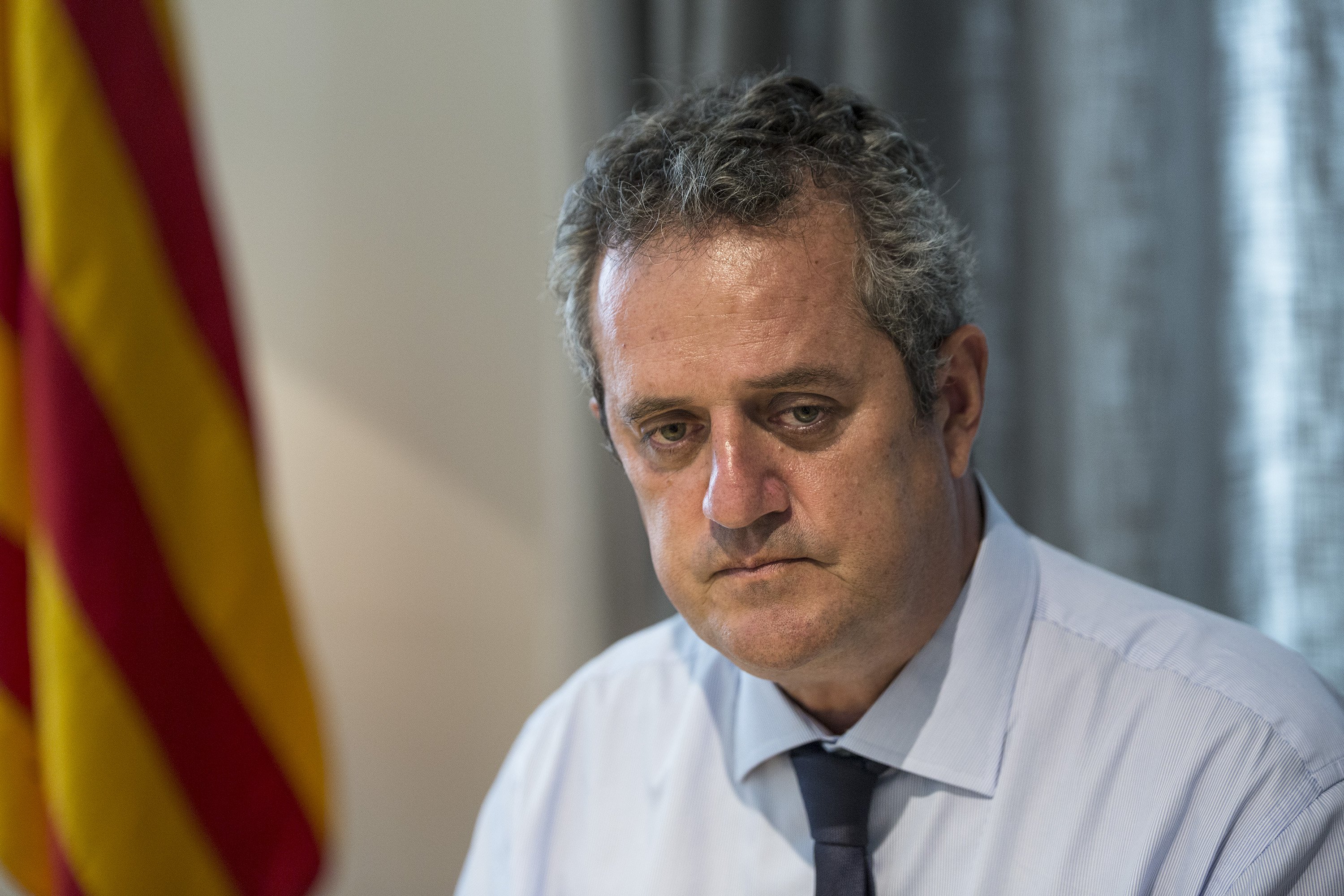Supreme Court judge Pablo Llarena has denied former Catalan Interior minister Joaquim Forn's application for release on bail. As such, he remains in preventive detention as the judge believes the risk of reoffending remains, despite Forn having resigned the seat as a deputy he won in the December election. Yesterday's testimony by Civil Guard colonel Diego Pérez de los Cobos, who coordinated the police operation during the independence referendum, was key to the judge's decision to deny release. The judge blames Forn for the referendum's success and the inaction by the Mossos d'Esquadra (Catalan police) who didn't close any polling stations or confiscate any election material.
In his ruling, as factors for determining that a risk of recidivism exists, the judge emphasises "the uncertainty that exists that the will of the political majority is to respect the law in achieving the aspiration of independence which still today the suspect shares" and "the still close determination with which the suspect carried out his serious criminal activity", although his contributions necessarily have to be outside of the parliamentary activity which he has resigned.
Llarena believes that the investigation so far confirms the eventual responsibility of the Interior minister for the inaction of the 17,000 Mossos agents towards the illegal 1st October referendum, and especially highlights the testimony of colonel Diego Pérez de los Cobos as coordinator of the police operation, who described actions which went against fulfilling the order to prevent the holding of the vote. "Conduct, Forn's, which was always aimed at feigning a wish to fulfil the legal decisions, but which put into action a plan which prevented their observance," he writes.
The judge also notes that Forn's nomination took place after a government crisis which, as the then-outgoing ministers admitted during their own testimony this week, was brought about by their rejection of a unilateral strategy in Catalonia.
The order concludes that, at this point in the investigation, there are a variety of factors which suggest that "the political power structures, exercised by Forn, took advantage of their organic and functional command over the police body to direct the police actions towards the success of the referendum, on which depended the declaration of independence, instead of obeying the many legal verdicts dictated to safeguard the law and the constitutional order", says Llarena.
Analysing the risk of reoffending, the judge says that Forn's ideology falls within a political context in which "there is no certainty that the intention of achieving the independence of Catalonia has disappeared, and there are still sectors which explicitly argue that it has to be immediately attained". "Specifically, this last attitude is the one upheld by the person who once awarded Mr Forn his trust to be Interior minister and who headed the electoral list in which the suspect decided to participate just a few weeks ago," says the ruling, avoiding explicitly naming president Carles Puigdemont.

